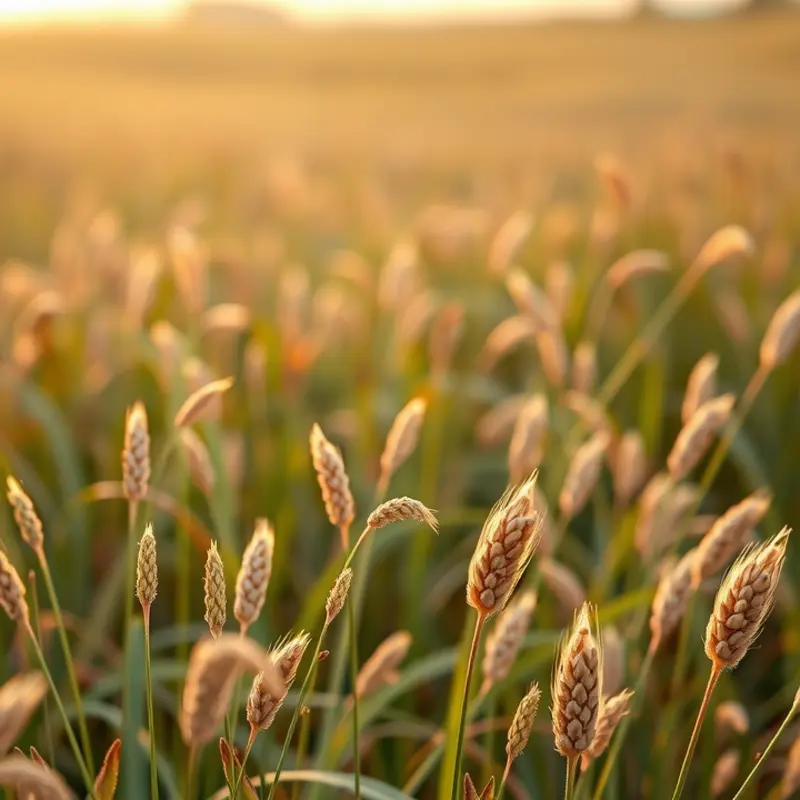As more people embrace plant-based lifestyles, curiosity about vegan protein sources is on the rise. Understanding where to find adequate protein without animal products is essential for those interested in nutrition and health. This exploration of diverse and nutritious vegan protein sources provides clarity, practical insights, and even some meal ideas, making it easier for everyone to incorporate these options into their diets.
Nature’s Powerhouses: Legumes and Beans

Among the pantheon of plant-based proteins, legumes and beans stand unrivaled. These nutrient-rich foods are not only versatile but also packed with essential amino acids, vitamins, and minerals. Exploring the various types and their benefits can transform your approach to vegan protein sources.
Beans and legumes belong to the same family, but each brings something unique to the table. Lentils, for instance, provide a robust 18 grams of protein per cup, coupled with plenty of fiber and iron. Their quick cooking time makes them a convenient option for busy individuals. Chickpeas, another staple, boast around 14.5 grams of protein per cup. Beyond their protein content, they’re known for high levels of folate, manganese, and copper.
For those looking to diversify their palate, consider exploring lesser-known varieties. Adzuki beans offer a slightly sweeter profile, making them ideal for both savory and sweet dishes. Edamame, young soybeans, contribute approximately 17 grams of protein per cup and are a significant source of essential fatty acids.
The nutritional profile of legumes and beans goes beyond mere protein. Their high fiber content aids in digestion and promotes a healthy gut. They are also rich in antioxidants, which help combat oxidative stress, and contain low glycemic indexes, making them suitable for those monitoring blood sugar levels.
Incorporating beans and legumes into daily meals can be seamless and exciting. A Mediterranean chickpea salad provides a refreshing burst of flavor and nutrients, combining chickpeas with vibrant vegetables and a tangy dressing. Explore this delightful salad option that balances taste and health effortlessly.
Soups and stews also serve as an excellent medium for enjoying legumes. A hearty lentil stew, simmered with vegetables and spices, not only fills the stomach but also satisfies the soul. Topping off with a bean-based chili can elevate any meal. Whether smoky black beans or creamy cannellini beans, the texture and taste transform ordinary meals into extraordinary culinary experiences.
Experimenting with bean-based dips can also introduce new flavors to your repertoire. Hummus is just the beginning. Consider a white bean dip, perfect for pairing with fresh vegetables or whole-grain crackers. This addition enhances snack times with nutrition and satisfaction.
For a breakfast boost, consider preparing a legume-packed scramble. With tofu as a base and black beans as an accompaniment, this dish offers a protein-rich start to the day. Flavorful seasonings and a side of avocado can make this hearty and fulfilling.
In the quest for nutritious, plant-based meals, beans and legumes prove indispensable. Their versatility in preparation and richness in essential nutrients make them essential allies for any balanced vegan diet. By integrating these powerhouses thoughtfully, one can enhance both the health and diversity of vegan living.
Grains and Seeds: Hidden Gems of Plant Protein

Grains and seeds are often underestimated in the quest for protein-rich foods. However, they are excellent sources of proteins and contain vital nutrients. Among these, quinoa, chia seeds, and hemp seeds stand out as nutritional powerhouses worth incorporating into any balanced diet.
Quinoa is a staple in many plant-based diets, not just because it’s a complete protein, containing all nine essential amino acids. This pseudo-cereal also provides substantial amounts of fiber, iron, and magnesium. Cooking quinoa is simple; use a 2:1 water-to-quinoa ratio. Bring it to a boil, cover, and let it simmer for about 15 minutes. Fluff it with a fork and use it as a base for salads, stews, or as a side dish. Try blending it with roasted vegetables and a drizzle of tahini for a nutritious meal.
Chia seeds might be small, but they pack a big nutritional punch. These seeds are an excellent source of omega-3 fatty acids, antioxidants, and protein. One of the unique properties of chia seeds is their ability to absorb liquid and form a gel-like consistency. Use this to your advantage by making a simple chia seed pudding. Combine two tablespoons of chia seeds with one cup of almond milk, add a touch of vanilla and a sweetener of choice, and refrigerate overnight. By morning, you’ll have a delicious and satisfying breakfast option.
Hemp seeds are another fantastic protein source often overlooked. With a nutty flavor, they are rich in essential fatty acids and offer about 10 grams of protein per three-tablespoon serving. Sprinkling hemp seeds over salads, cereals, or smoothies enhances both texture and nutrition. Blend them into your favorite hummus recipe for extra creaminess and a nutritional boost.
While these grains and seeds are versatile, experimenting with different preparation methods helps keep meals interesting. Whether soaking, sprouting, or blending them, these techniques enhance their flavors and nutritional profiles. Sprouting seeds like quinoa activates their enzymes, making them easier to digest. Meanwhile, chia seeds offer a nutritious thickening agent for smoothies.
Incorporating more grains and seeds into your diet can be simple and rewarding. Not only do they provide high-quality plant-based protein, but they also contribute to overall health with their dense array of nutrients. For a refreshing take on salads or to explore innovative meal ideas, consider trying recipes like Mediterranean Chickpea Salad, which combines legumes and grains for a complete meal. For more plant-based recipes, you can check out this Mediterranean Chickpea Salad. By making these additions, you embrace a healthier and more varied vegan diet that sustains and delights.
Final words
A well-rounded vegan diet is rich in a variety of protein sources, making it easier than ever to meet nutritional needs without animal products. Incorporating legumes, beans, grains, and seeds ensures a diverse and satisfying array of meals. As dietary trends continue to evolve, exploring these protein-packed options will not only enhance health but also contribute to environmental sustainability. This knowledge empowers individuals to choose foods that align with their ethical beliefs while maintaining physical well-being and culinary creativity.








